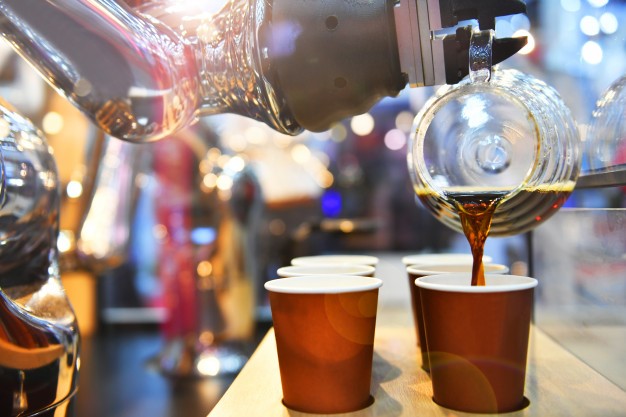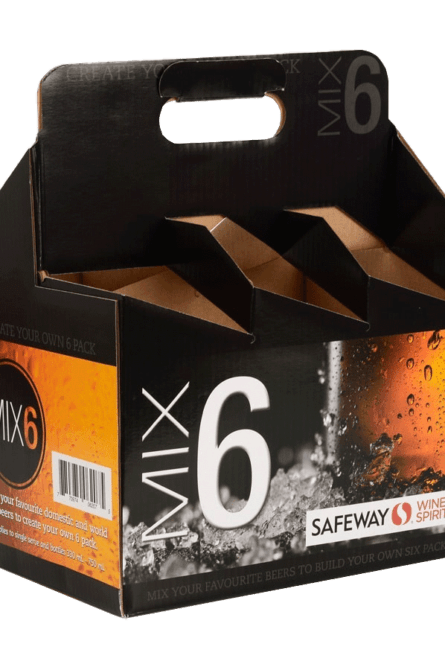24

WHAT is Artificial Intelligence?
Artificial intelligence (AI) refers to incorporate human intelligence in machines and make them able to perform actions similar to humans. This term may also define the ability of a device to learn and solve problems. One major characteristic of artificial intelligence is that it enables the machine to rationalize and make wise decisions to achieve a goal.
The field of artificial intelligence is continuously evolving and expanding to benefit nearly all industrial domains. The machines based on artificial intelligence are wired, incorporating a multi-disciplinary approach, including computer science, mathematics, linguistics, and psychology.

With the rapidly growing world’s population, it has now become difficult to meet the food demand. Therefore, it is need of the hour to enhance the efficacy of the production and processing units of the food industry.
Technology- A Major Driving Factor in Today’s Food Industry
Nowadays, technology has become a major part of food production and delivery processes. Everything ranging from finding food via applications in smartphones to mass production of food involves technology. This advancement in technology has made the lives easier by simplifying the tasks. It offers the best way to enhance the efficiency of food packaging, increasing the shelf life of food, and meeting the safety requirements.
Food Industry And Artificial Intelligence
For centuries, food industry stakeholders, farmers, and industrialists are trying to find the answer to the question of how they can meet the growing food demand? Some of them have a perception that automation, technology advancement, and mass production are the key elements to sustain a growing population.

On the other hand, there is still a percentage of people supporting the idea of amalgamating advanced data sciences with computer science techniques in the form of artificial intelligence and machine learning. Artificial Intelligence offers many solutions to automate and optimize processes, save cost, and, most importantly, eliminates the risk of human errors for many industries. You can Experience Top Qualitative Food Boxes for Your Pets.
What if we incorporate the most advance form of technology to upgrade our food sectors? It will not only enhance the quality of food but also lowers the production costs. In addition, this will save the time it takes in packaging food boxes by merely the whole process.
How Can You Incorporate Artificial Intelligence In Food Industry?
To Optimize The Supply Chain
It is important to be transparent in the supply chain to maintain food safety regulations. We all know that keeping an eye on every single step by human labor is a task difficult to achieve. Here come the services of artificial intelligence in food manufacturing. It makes monitoring and surveillance easy for the industries. This advancement in data sciences ensures to take care of everything from price to inventory management predictions. It tracks the complete path of goods from the production point to the delivery place, ensuring transparency. In short, artificial intelligence provides solutions such as Symphony Retail that enables the manufacturers to approximate pricing, the demand for transportation, and inventory. Therefore, it reduces the probability of food wastage and ensures smart production.
To Digitize The Production Unit
Instead of hiring a large group of labor, you can now infuse artificial intelligence to digitize your production unit. This not eliminates the need for extensive labor but also ensures quality production. Using an artificial intelligence-based solution, you can easily figure out the plant type suitable for the volume of production you are planning to make. Similarly, there are machines available such as TORMA that facilitate sorting the vegetables and automatically discard the rotten ones. In short, this automation enhances food safety and ensures you to pack only quality food in the food boxes. This type of artificial intelligence uses camera and core sensor technologies to recognize the material based on its appearance, color, shape (diameter, length, width) and biological characteristics. This phenomenon of AI is called optical food sorting.

To Enable Remote Monitoring
Manufacturing and packaging food in bulk involves complicated and intricate mechanisms. The maintenance of these precise machines can be very costly without predictive measures. Artificial intelligence enables you to figure out the time and cost to repair by categorizing expected issues and establishing predictive alerts. Having maintenance predictions can make you save up to 50% maintenance time and 10% cost. Artificial intelligence enables you to monitor production processes without having the laborers present on the production site. Yes! You heard that right it allows remote monitoring. For instance, by a digital twin of a machine, you can regulate the performance on the decided parameters to boost the output. In addition, Root Cause Analysis allows you to identify the factors that affect the quality of the production process. In short, this efficient monitoring will enhance the overall equipment effectiveness (OEE).
What Benefits Can You Get By Artificial Intelligence?
Reduces The Need Of Human Labor
AI automates the overall production and packaging processes involved in the food industry, thus reducing the demand for human labor. Similarly, it also saves time and enhances the efficiency of the process.
Speed Up Production
The automated process saves the time taken in production and packaging. Machines offer more precise and controlled operation as compared to human labor. Therefore, incorporating artificial intelligence in the food industry support mass production and meet the food requirements. It also speeds up the process of packaging food in the designated food boxes.
Ensures Food Security
With the rapidly growing world population, food security is becoming an emerging issue. It is important to bring innovation in the production and processing of the food industry to meet the global food requirements. Above all, having digitized systems and genetically modified food are now the only solutions we can look up to, for fulfilling the food demands.
Avoid Human Errors
Artificial intelligence enables you to control the whole setup of the industry through machines that have lesser operational and negligence errors. This means, by opting for AI, you can avoid human errors to a greater extent.















